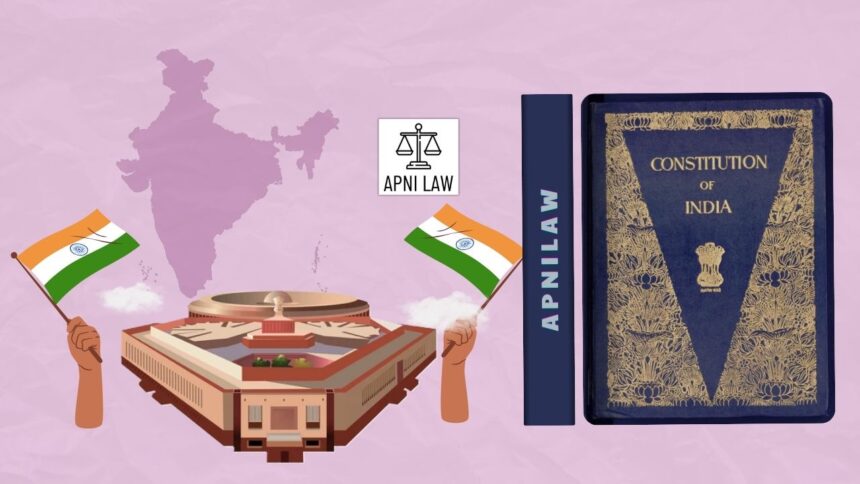Who Is the Governor of a State in India?
The Governor is the constitutional head of an Indian state. The Constitution assigns this office a central position in the federal structure. The Governor represents the Union Government at the state level and ensures that the state functions within the constitutional framework. Although the Governor functions as the nominal executive head, real authority lies with the Council of Ministers led by the Chief Minister. Yet, the Governor plays an important role in upholding constitutional values, exercising powers, and acting independently in special situations.
How Is the Governor Appointed?
The President of India appoints the Governor of a state. This appointment takes place under Article 155 of the Constitution. The President issues a formal warrant signed and sealed to complete the appointment. The Governor is not elected and does not need the approval of the state government or state legislature. The Union Government recommends the candidate to the President, who then makes the appointment.
The Governor serves a five-year term. However, the Governor holds office at the pleasure of the President, which means the term may end earlier. The Governor may also continue in office until a successor takes charge. The Constitution sets simple qualifications for this position. The Governor must be an Indian citizen. The person must be at least 35 years old. The Governor cannot hold any office of profit during the term. The Constitution does not require educational qualifications or previous political experience.
What Executive Powers Does the Governor Have?
The Governor acts as the head of the state executive. All executive actions of the state are taken in the Governor’s name under Article 154. The Governor appoints the Chief Minister. The Governor then appoints other ministers based on the advice of the Chief Minister. The Governor also appoints the Advocate General of the state and the members of the State Public Service Commission.
The Governor receives reports from various departments and ensures that the administration works according to law. The Governor may seek information from the Chief Minister on matters related to state governance. The Governor supervises the functioning of the state executive but usually follows the advice of the Council of Ministers.
What Legislative Powers Does the Governor Hold?
The Governor plays a key legislative role. The Governor summons the state legislature for sessions and can prorogue the houses. The Governor may also dissolve the Legislative Assembly when needed. The Governor addresses the first session of the state legislature every year and outlines the policies of the government.
No bill passed by the state legislature becomes law without the Governor’s assent. The Governor may give assent, withhold assent, return a bill for reconsideration, or reserve the bill for the President’s approval. The Governor can also send messages to the legislature to draw attention to important issues. These powers allow the Governor to guide and monitor the legislative process.
What Judicial Powers Does the Governor Exercise?
The Governor holds limited judicial powers under Article 161. The Governor can grant pardons, reprieves, respites, or remissions of punishment for offenses against state laws. The Governor can also suspend or commute a sentence. These powers act as a humanitarian check within the justice system. The Governor exercises these powers after considering the opinions of the concerned authorities.
When Does the Governor Use Discretionary Powers?
The Governor usually follows the advice of the Council of Ministers. However, several situations require the Governor to act independently. These actions fall under discretionary powers.
One common situation is when no party gains a clear majority after an election. The Governor must then select a leader who is most likely to command support in the Assembly. The Governor may also report to the President if the constitutional machinery of the state breaks down. In such cases, the Governor may recommend the imposition of President’s Rule. The Governor may reserve certain bills for the President’s consideration if the bill conflicts with national interests or constitutional provisions. These discretionary powers give the Governor an important role as a constitutional guardian.
What Role Does the Governor Play in the Federal System?
The Governor acts as a bridge between the Union Government and the state government. The Governor ensures that the state government works within the limits of the Constitution. The Governor reports on significant developments and administrative issues to the Union Government when required. This communication helps maintain balance and coordination between the Centre and the states.
The Governor also protects constitutional values at the state level. The Governor ensures that the administration respects democratic principles. The Governor may intervene when the state government violates constitutional rules or fails to function according to law. In rare cases, the Governor may advise the Union Government to take corrective action.
How Does the Governor Maintain Constitutional Order?
The Constitution expects the Governor to act as a stabilising force in state politics. The Governor must ensure that the government works responsibly. The Governor oversees the formation of the Council of Ministers and monitors legislative procedures. The Governor ensures that state laws follow constitutional guidelines.
When conflicts arise between the state executive and legislature, the Governor may help restore order. The Governor’s ability to reserve bills for presidential consideration and to act independently in crucial situations strengthens this role. These responsibilities make the Governor an important safeguard against constitutional misuse.
Why Is the Governor’s Position Significant?
The Governor’s role goes beyond ceremonial duties. The Governor plays an active part in administration, lawmaking, and constitutional supervision. The Governor also helps maintain federal balance by acting as the Centre’s representative in the state. The Governor supports democratic processes by ensuring that governments are formed legally and that laws follow constitutional norms.
Even though real executive power lies with the elected government, the Governor’s office remains vital. The Governor protects the Constitution, ensures administrative continuity, and acts as a neutral authority during political crises. This blend of symbolic status and real influence makes the Governor a key figure in India’s federal democracy.
For any specific query call at +91 – 8569843472
Conclusion
The Governor ensures that the state government functions smoothly and within constitutional boundaries. The Governor uses executive, legislative, judicial, and discretionary powers to guide the state administration. The Governor acts as a link between the Centre and the state, maintains constitutional order, and acts independently when needed. The office plays a crucial role in upholding democratic values, preventing misuse of power, and maintaining the federal spirit of India.
In summary, the Governor performs a wide range of responsibilities that help maintain stability and constitutional integrity. The Governor’s actions support the functioning of the state executive, the legislature, and the justice system. The Governor safeguards democratic norms while preserving the delicate balance between the Union and the states.








